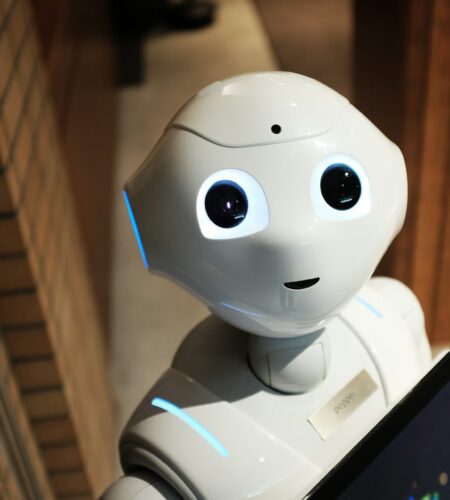Artificial Intelligence has become a buzzword in recent years, and its impact on our everyday lives is increasingly becoming apparent. From smart homes to self-driving cars, AI technology is transforming the way we interact with the world around us.
With the use of intelligent algorithms and machine learning, everyday tasks such as making dinner reservations or finding the quickest route to work can now be done effortlessly.
How AI Is Bringing Homes to Life
Smart home automation is no longer a futuristic concept, but a reality transforming how we live our lives. With the advancement of AI technology, homes are gradually becoming more personalized, intelligent, and autonomous than ever before.
From controlling the thermostat to opening the curtains, smart home systems can now monitor and manage all aspects of your home remotely, providing convenience and peace of mind.
As more people embrace the benefits of smart home automation, the possibilities for the future are endless. With AI revolutionizing the way we interact with our homes, the homes of the future will certainly be smarter and more intuitive than we can ever imagine.
Intelligent Transportation
Intelligent transportation has the potential to transform the way we commute and travel. Self-driving cars, in particular, have captured the public’s imagination and are seen as a revolutionary technology that could significantly reduce accidents, travel time, and costs.
These vehicles rely on a combination of sophisticated sensors, machine learning algorithms, and real-time data to navigate roads and respond to changing traffic conditions.
However, self-driving cars are only one aspect of intelligent transportation. The deployment of advanced traffic optimization systems could also help reduce congestion and improve the flow of vehicles, pedestrians, and cyclists.
By leveraging real-time data such as weather conditions, accidents, and road closures, city planners and engineers can make better decisions about how to manage traffic in real-time.
Convenient Daily Errands
Technology has transformed our lives in countless ways, and perhaps nowhere is this more evident than in the realm of convenience. One way in which technology has made our daily routines more streamlined is through the use of AI assistants.
These digital helpers can now take care of everyday tasks like booking appointments and recommending activities, freeing up time and brain space so we can focus on the things that matter.
No longer do we have to juggle multiple calendars or spend hours searching for fun things to do – with AI at our fingertips, we can make the most of every day without any of the hassle.
Personalized Health Services
As we continue to make strides in the field of healthcare, personalized health services are becoming more and more prevalent. With the implementation of precision diagnostics and remote patient monitoring, patients can receive customized care that caters to their specific needs.
Precision diagnostics allow healthcare professionals to accurately diagnose conditions and tailor treatments accordingly, ensuring the best possible outcome for each patient.
Remote patient monitoring allows healthcare professionals to keep track of patient’s health even when they are not in the hospital or doctor’s office, allowing for early detection of any problems and avoiding potential complications.
The Robot Workforce
Recent advancements in artificial intelligence technology have spurred heated debates about the future of work, particularly regarding whether AI will ultimately replace human jobs.
While some argue that AI and robots will increase efficiency and productivity, others warn that they could also displace millions of workers.
Indeed, automation has already replaced many jobs in manufacturing, but some experts predict that as AI becomes more sophisticated, it could start replacing jobs in fields like healthcare and education as well.
It’s important to note, however, that AI may also create entirely new industries and job roles that we haven’t even imagined yet.
Privacy and Bias Concerns
As artificial intelligence continues to become more prevalent in our daily lives, it’s important to consider the ethical and fair implications. This is especially true when it comes to privacy and bias concerns.
To ensure that AI is not harming individuals or perpetuating harmful stereotypes, organizations need to prioritize transparency and accountability. This means taking steps to ensure that sensitive data is not being misused or mishandled and that AI systems are designed with diversity and inclusivity in mind.
By prioritizing these concerns, we can ensure that the benefits of AI are shared fairly and equitably, without sacrificing the privacy and dignity of individuals.
As we come to the end of this blog post, it’s clear that smart home automation is no longer a far-fetched concept but a reality that is revolutionizing the way we live our lives.
From controlling our home appliances to managing our security systems, smart homes are making our daily routines more efficient and convenient. With AI technology continuously advancing, the capabilities of these systems are only getting smarter and more personalized.
We can imagine a future where our homes will anticipate our needs and adapt accordingly without us even lifting a finger. The potential for smart home automation is limitless, and as more people embrace this technology, we can expect to see even more innovative and intelligent features being introduced.
Subscribe to our email newsletter to get the latest posts delivered right to your email.

